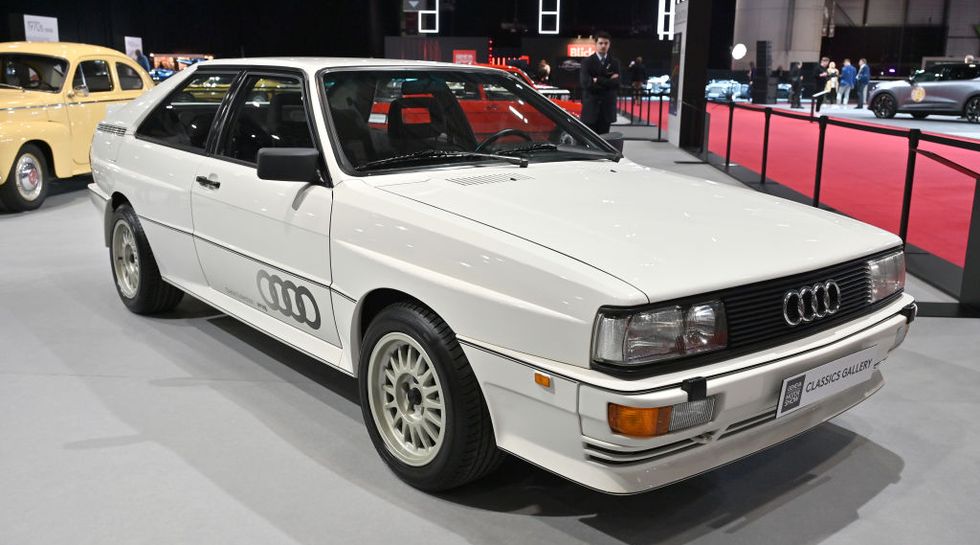- Geneva International Motor Show (GIMS) announces its cancelation after the 2024 event, with the Comité permanent du Salon International de l’Automobile Foundation in Geneva planning to dissolve the foundation entirely.
- The show’s organizers cite the eroded attractiveness of the major European shows, as well as uncertainties in the auto industry.
- GIMS Doha, launched in October 2023, will return in November 2025 as the successor event to Geneva.
The Geneva Motor Show was launched back when automobiles were the new technology seeking to displace the horse-drawn carriage, and when most automakers were what would be called “startups” today.
Launched in 1905, the event has been an important (if not exactly the largest) fixture on the auto show circuit, but had long ago managed to secure an important place for itself.
Now, the show has seemingly succumbed to the pressures of the pandemic economy, or the post-pandemic economy, depending on your point of view. The organizers of the show revealed late last week that the event is being discontinued indefinitely, with the Comité permanent du Salon International de l’Automobile Foundation in Geneva requesting permission from the Swiss government to dissolve the foundation entirely.
“While the February 2024 relaunch edition intended to reposition and perpetuate the Geneva International Motor Show (GIMS) after a four-year absence due to COVID-19, the Board of the Comité permanent du Salon International de l’Automobile Foundation notes that there are too many uncertainties linked to the automotive industry and the eroded attractiveness of the major European shows to take the risk of investing further into the future,” the organizers of the event said in a statement.
The 2024 edition of the event, which kicked off in late February, was notable for its absences as for the brands that were there.
Mercedes-Benz, BMW, Audi, and Volkswagen skipped the event, while BYD, Denza, Lucid, MG, Microlino, and Renault were in attendance.
But is the pandemic and its effects on the industry entirely to blame for Geneva’s demise?
Even before the pandemic began to affect the auto industry in the early winter of 2020, auto shows as events were on increasingly shaky ground, as the organizers noted, with automakers choosing to spend the finite marketing money elsewhere.
In fact, quite a few events were on the decline or on the verge of collapse due to various trends in the industry even before 2020—trends that had seen auto show foot traffic decline over time.
For many potential attendees, social media had replaced the role of the auto show in serving up new sheetmetal, while large public events and conventions in city centers aimed at the automotive industry had become less of a destination for car shoppers or enthusiasts.
The effects on the industry brought by the pandemic certainly accelerated a number of trends, especially as it concerns large events, and in the past four years it has been difficult for organizers of many major auto shows to reassemble the same set of sponsors and attendees that had been in place before 2020, in a rapidly changing business environment.
The growth of the Chinese auto market over the past decade and a half, we suspect, has also reoriented automaker priorities, in what is now the largest consumer auto market in the world.
Pressure from two other, larger auto shows in countries with significant auto industries, also appears to have played a role.
“This extremely regrettable decision should not detract from the efforts and determination with which we have tried to regain our success,” said Alexandre de Senarclens, President of the Comité permanent du Salon International de l’Automobile Foundation.
“However, it has to be said that the lack of interest shown by manufacturers in the Geneva Salon in a difficult industry context, the competition from the Paris and Munich shows which are favored by their domestic industry, and the investment levels required to maintain such a show, sound the final blow for a future edition.”
The Paris and Munich shows had seen their share of pandemic-related pressures, but they are also based in countries with extensive auto industries, we should note, in contrast to Switzerland.
But Geneva’s traditional place on the calendar, during the first or second week of March, was not under pressure from other industry events that had gained prominence in recent years, including CES, which takes place in January, or Auto China in Beijing and the Shanghai Auto Show right next to each other on the calendar in late April and early May.
The organizers of Geneva are now backing a satellite event in Doha, Qatar, as the successor of the Geneva show, having kicked off in October 2023 as a 10-day event that saw 180,000 visitors.
The Doha show, curiously dubbed GIMS Qatar, had hosted 30 brands and 150 vehicles at the Doha Exhibition and Convention Center, in addition to 12 world premieres.
The next event in Doha is scheduled for November 2025, so there will be a bit of a gap between the last Geneva Motor Show and the next GIMS Doha expo.
Will major European auto shows be reduced to one or two events in coming years, or will there be enough support for a greater lineup of shows on the calendar? Let us know in the comments below.

Jay Ramey grew up around very strange European cars, and instead of seeking out something reliable and comfortable for his own personal use he has been drawn to the more adventurous side of the dependability spectrum. Despite being followed around by French cars for the past decade, he has somehow been able to avoid Citroën ownership, judging them too commonplace, and is currently looking at cars from the former Czechoslovakia. Jay has been with Autoweek since 2013.


